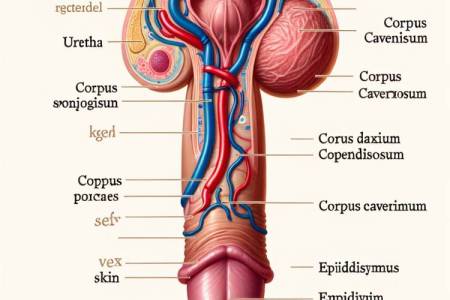Sexual Dysfunction and Therapy: How to Face Challenges and Find Solutions
Sexual dysfunction is a sensitive topic that is often seen as taboo, despite being a common issue. Many people feel embarrassed to talk about it or seek help. I believe that open discussion about this subject can bring relief and hope to those facing these challenges. I'd like to share insights into different types of sexual dysfunctions and their treatment options, accompanied by personal experiences and advice.
Erectile Dysfunction
Erectile dysfunction (ED) is one of the most common sexual problems among men. My friend Martin, a long-time buddy of mine, once confided in me that he struggled to achieve and maintain an erection. It was incredibly frustrating for him and affected his self-esteem and relationship. ED assessments may include examining the penis during an erection induced by an injection, followed by an ultrasound evaluation.
Treatment options:
- Medications: The most well-known include Viagra, Cialis, and Levitra, which help increase blood flow to the penis and facilitate erection. Most of these medications contain active ingredients such as sildenafil, tadalafil, vardenafil, or avanafil.
- Psychotherapy: If ED is psychologically rooted, therapy can help. Martin started seeing a therapist, where he learned techniques to manage stress and anxiety, which ultimately improved his sex life. If you’re struggling with ED, don’t hesitate to talk to your partner and a specialist. Open communication and support are crucial to finding solutions.
- Lifestyle changes: A healthier diet, regular exercise, and reducing alcohol and smoking can positively affect erectile function.
Vaginismus
Vaginismus is a condition where the muscles around the vagina involuntarily contract, making intercourse painful or impossible. In short, the pelvic floor muscles reflexively tighten during penetration attempts. My friend Jane struggled with this for several years and initially felt isolated and hopeless.
Treatment options:
- Pelvic floor therapy: Specialized exercises and muscle relaxation techniques can help alleviate vaginismus. Jane started attending physical therapy, where she gradually learned to control and relax her muscles.
- Psychotherapy: Therapy can uncover psychological causes of vaginismus, such as anxiety or trauma. Jane found significant relief in therapy, where she could openly discuss her feelings and experiences.
- Desensitization: Gradually introducing dilators of different sizes can help get used to penetration without pain.
- Lubricants and hyaluronic acid products are also popular for moisturizing the vaginal lining, easing discomfort.
Low Libido
Low libido can affect both men and women, often causing frustration and tension in relationships. If low libido persists, it may stem from hormonal imbalances, psychological issues, or chronic illness (such as type 2 diabetes or high blood pressure). Common causes include work stress, lack of sleep, unhealthy lifestyle habits, fatigue, and more.
Treatment options:
- Herbal remedies: One of the most popular herbs for low libido is Tribulus Terrestris (often called "natural Viagra"), available in tea or drop form. Other effective herbs include hyssop, maca root, and ginseng. Personally, I’ve had great results with maca root, and I’d highly recommend it, as I noticed changes after just a few uses.
- Communication: Very easy advice - open dialogue about your needs, desires, and concerns can strengthen intimacy and understanding.
- Psychotherapy: Therapy can help uncover and address emotional and psychological causes of low libido.
- Lifestyle changes: Stress, fatigue, and unhealthy habits can lower libido. A healthier diet, exercise, and enough rest can bring positive changes.
- Medications: In some cases, doctors may prescribe hormone treatments or medications to boost sexual desire. Various vitamins that contain the above-mentioned ingredients can also help improve libido.
It’s important to address stress and take care of your emotional well-being. Your body and mind are connected, and when one is out of balance, it can affect your sexual desire.
Finally, I would like to add that patience is key. Progress doesn’t happen overnight. Both Martin and Jane had to undergo several months of therapy before they began to see improvements. What’s important is not to give up and to believe that every small improvement is a step in the right direction. Sexual dysfunction can be a challenging topic, but it’s not something we should face alone. There are many ways to find help and support, whether through medication, therapy, or lifestyle changes. The important factors are openness, communication, and patience.
If you’re facing sexual difficulties, remember that you’re not alone. Don’t be afraid to seek help and talk about your feelings with your partner and a specialist. Love and understanding can overcome many obstacles, and together, you can find a path to a satisfying and fulfilling sexual life.

 Tongue Tornado
Tongue Tornado 














Comments (0)
Facebook Comments (0)